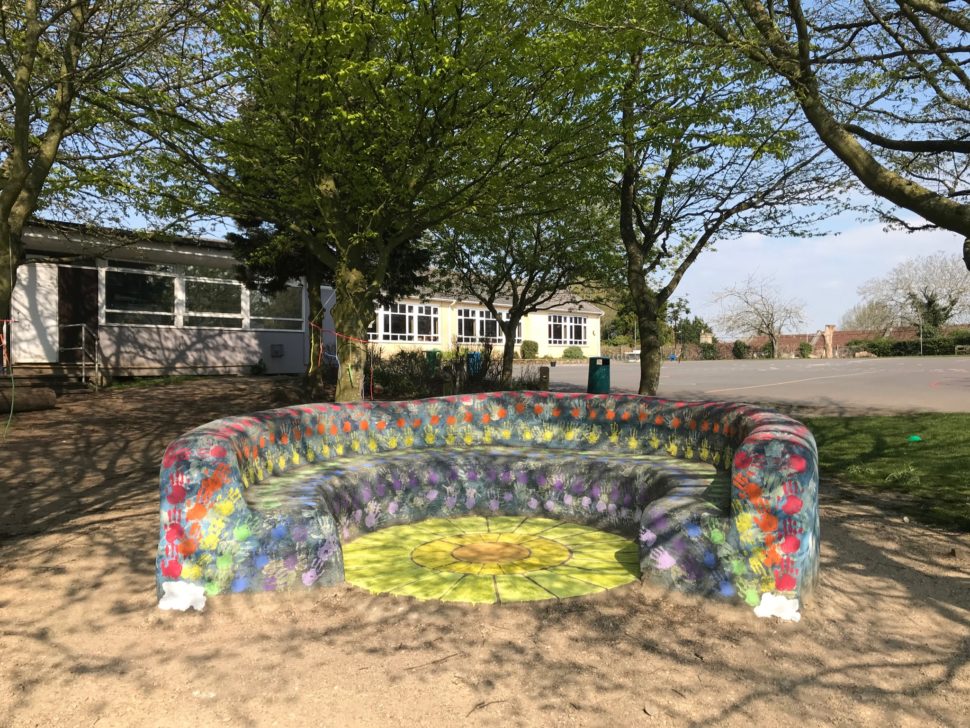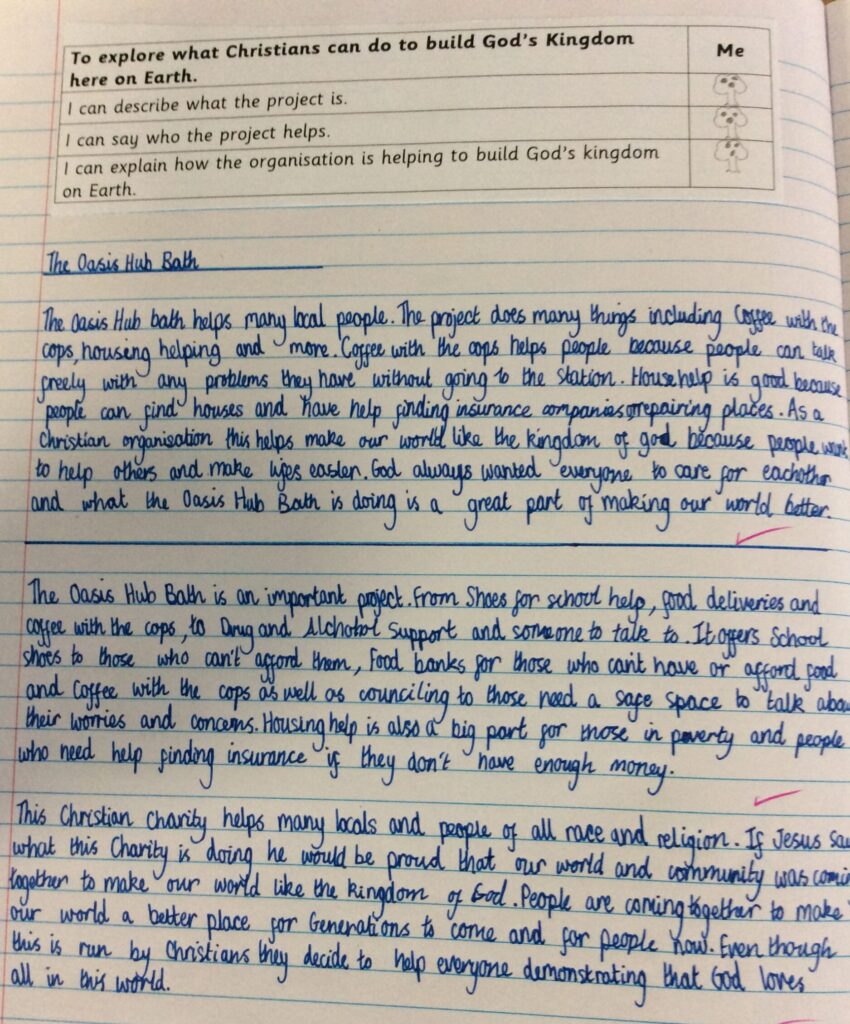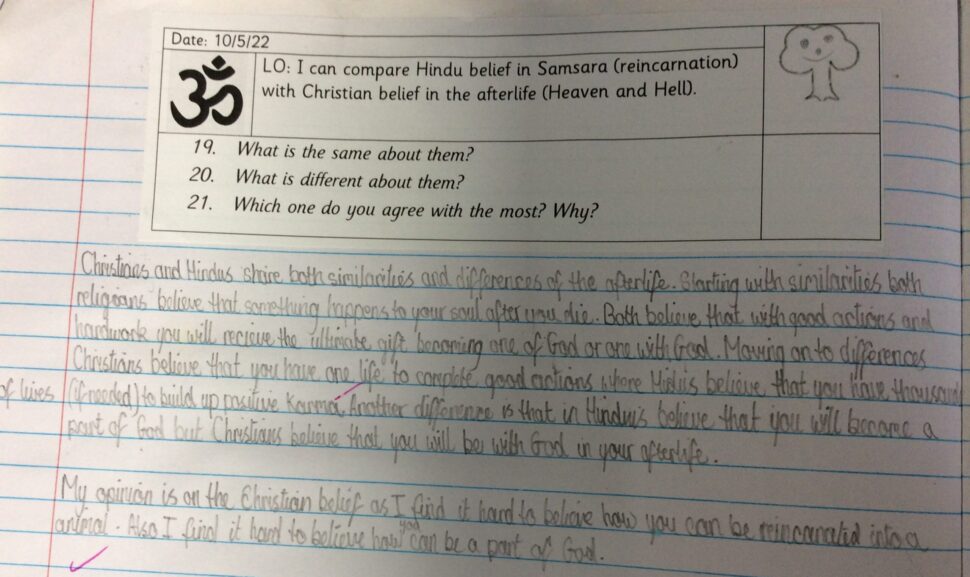
Religion and Worldviews
How Religion and Worldviews links to our school vision.
Learn
At Christ Church, we follow the Wiltshire Agreed Syllabus for Religion and Worldviews. Our RaW teaching involves:

Grow
Our intent is that our teaching of Religion and Worldviews will:

Flourish
We aim to excite and motivate the pupils through experiential learning involving:
INTENT (Learn).
At Christ Church CE Primary School the Religious Education curriculum plays an integral role in defining the school’s distinctive Christian character. RE plays a significant role in developing children’s spiritual, moral, social and cultural development. The curriculum promotes open mindedness and encourages children to be respectful and understanding citizens who are sensitive to the beliefs of others. Through RE, children will learn from religion and human experiences and develop enquiry and response skills through the use of distinctive language, listening and empathy, then reflect on, analyse and evaluate their beliefs, values and practices and communicate their responses to enable them to develop both academically and personally. RE lessons encourage children to explore, engage and reflect on a wide range of religious beliefs and practices. RE plays a vital role in developing religious literacy and deepening pupils understanding of Christianity, in all its forms, and fostering appreciation and understanding of other faith traditions. The Religious Education curriculum is underpinned by the school’s adopted Christian Values: kindness, perseverance, honesty, trust, friendship, happiness and love. The influence of religious and world views is also studied on a local, national and global scale.
SMSC (Spiritual, Moral, Social and Cultural) values are explored through RE to aid with the development of tolerant, understanding and respectful individuals who play a positive role in their communities. These values encourage pupils to explore their own spirituality in order for them to flourish and be resilient and happy as they grow up and explore the world around them.
IMPLEMENTATION (Grow).
The school teaches religious education according to the Wiltshire Agreed Syllabus
and is supported by the Understanding Christianity (UC) scheme of work for the majority of the Christianity units, and Discovery RE which covers the other religions and belief systems. These schemes of work offer a spiral curriculum where children re-visit and build past concepts and knowledge. We have developed a rolling scheme of work which is used to ensure that all of the Christianity and other principal religions are covered as the children move through the school. The majority of the time allocated to RE will be devoted to the teaching of Christianity. The other main faiths that will be explored in KS1 are Judaism and Islam. In KS2 the children extend this by also studying Hinduism, Sikhism, and Buddhism.
IMPACT (Flourish).
To ensure that every pupil’s statutory entitlement to Religious Education is met, irrespective of their faith or belief, and within this to encourage pupils to explore questions of spirituality, identity, ethics, discrimination and prejudice.
To enable pupils to develop religious literacy and conceptual understanding of what it means to be a person of faith or no faith.
To encourage pupils to articulate their own ideas and experience of religion, belief and spirituality.
To encourage all pupils and teachers to experience RE as an exciting subject that feeds into an understanding of what it means to live in Bradford-on-Avon and Wiltshire and our wider world communities and to promote harmony and good community relations.
The children should develop:
Religion and worldviews documents